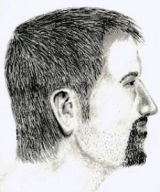An Overview of Testosterone Deficiency in Older Men

Testosterone deficiency affects over a million men in United States, and occurs when the body produces less and less of testosterone, the principal male sex hormone. This phenomenon occurs naturally with advancing age and can cause serious health complications if not dealt with on time. This is because testosterone plays a significant role in a man's life, and is associated with a variety of functions such as maturation of genital organs, development of secondary sexual characteristics, strengthening muscles, bone development, fueling sexual desire, and maintaining energy levels.
Testosterone production peaks during adolescence, and begins a gradual decline when a man enters middle age. Age and heredity are the most common risk factors for testosterone deficiency. Here's more on the signs of testosterone deficiency in older men, and methods to prevail over such an occurrence.
Signs of Testosterone Deficiency in Older Men
- Loss of musculature, resulting in muscle shrinkage and atrophy
- Loss of libido
- Depleted energy levels
- Reduction in sperm count and semen volume, leading to impotence and infertility
- An expanding waistline and expansion of breast tissue caused by excess fat accumulation
- Mood swings and irritability
- Difficulty in focusing and concentrating
- Shrinking testicles
No doubt then men with low testosterone may feel less manly. Testosterone deficiency can have long-term health complications that are physical, sexual, and emotional in nature. The good news is this condition can be treated simply by making certain modifications to your lifestyle. Add nutritional supplements such as Ageless Male to your diet. With a powerful mix of ingredients like fenugreek seed extract, zinc, magnesium, and essential vitamins that are crucial for optimum male health, this dietary supplement has brought on a sea of change for persons suffering from low testosterone. Consider reading up a few Ageless Male supplement reviews to understand the benefits of this safe-to-use product.
Don’t ignore your eating habits and sedentary lifestyle; they play a bigger role in restoring your body's hormonal balance than supplements alone. A testosterone boosting diet that includes foods high in smart fats, proteins, carbs, fiber, vitamin D, calcium, and zinc is the first step towards raising testosterone levels. Exercising will raise your T levels, release feel-good endorphins, fortify the immune system, and keep you in top shape.
Don’t take testosterone deficiency lightly. Men who have low levels of this hormone are more prone to obesity and heart disease in later life. Knowing what to expect from this condition will help you deal with it effectively. Don’t hesitate to consult a doctor if low testosterone symptoms bother you. Together, you can work on a healthier approach to your current lifestyle which will promote good health and keep you from experiencing the weakening effects of testosterone deficiency.
